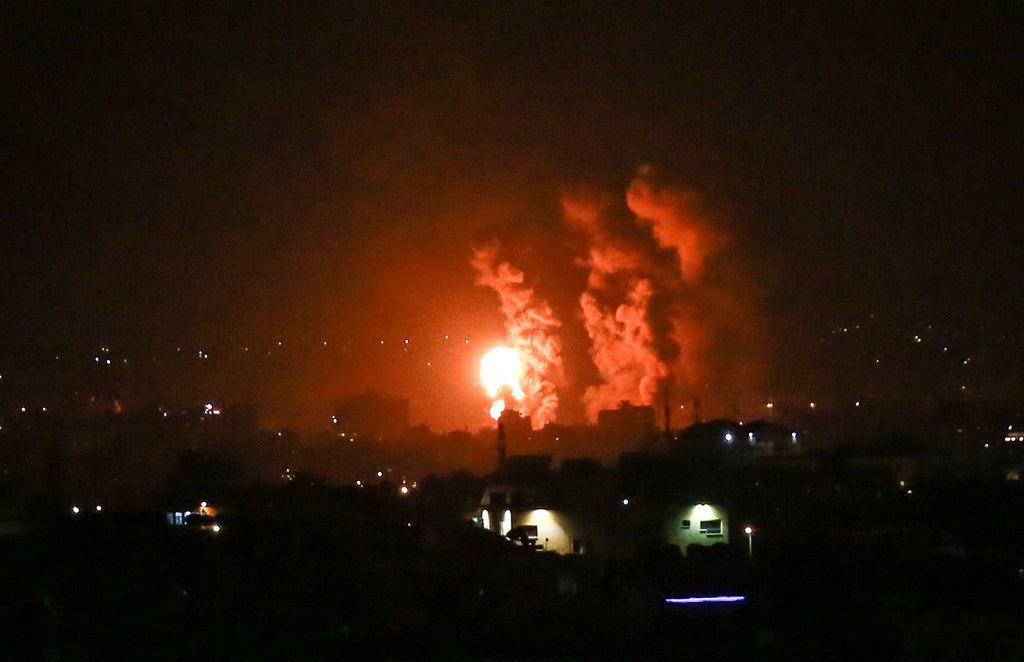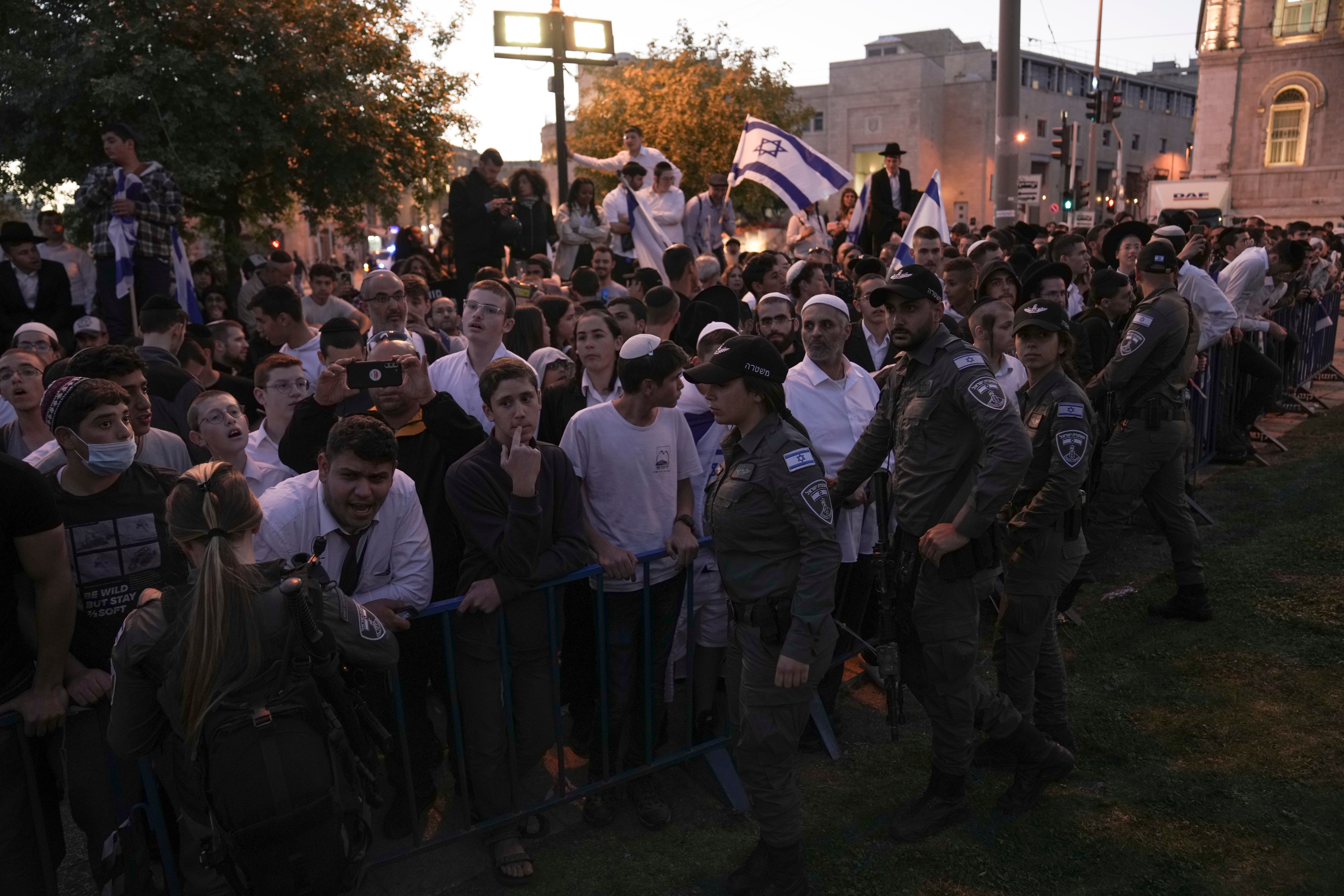
Israel has launched its “most significant” airstrikes on Gaza since last year’s war, as tensions continue to mount in the region.
Before dawn on Thursday, Israel hit a Hamas security post and an underground site reportedly used by the Islamist group to manufacture rocket parts, according to a statement from the Israeli military.
This is the second time this week that the Israeli air force has targeted locations inside the blockaded enclave.
The latest move came after rockets were fired towards Israel from Gaza, with one projectile hitting the southern city of Sderot, causing no injuries but slightly damaging a house. No Palestinian group has claimed responsibility for the attack.
In response to Israel’s airstrikes, Hamas said such bombing would make Palestinians keener to “resist the occupation and step up their support for Jerusalem and its people”.
The exchanges across the Gaza frontier, which coincide with the Muslim holy month of Ramadan and the Jewish celebration of Passover, come after an increase in violence in Jerusalem and the West Bank.
Since the start of last month, Israeli forces have killed almost 30 Palestinians in raids in the West Bank, while 14 people have been killed in Israel in a series of deadly street attacks.
While the world’s attention remains fixed on the Russian invasion of Ukraine, an increase in violence in Israel, the West Bank and Gaza has sparked fears of a repeat of last May’s Israel-Gaza war, which killed more than 250 Palestinians and 13 people in Israel.
Israeli police continue to clash regularly with Palestinian demonstrators at the al-Aqsa compound, a sacred site called Temple Mount by the Israelis. The confrontations started last week over concerns about Jewish worshippers entering the area, with Palestinians saying this contravenes the long-held policy of allowing non-Muslims to visit the site as long as they do not pray.

Israeli security forces reportedly wounded more than 150 Palestinians near the al-Aqsa mosque last Friday. Six days later, an unknown number of Palestinians were injured on Thursday at the compound by Israeli police, according to the Palestinian Red Crescent.
In a bid to prevent tensions from escalating further, the Israeli government blocked a 1,000-strong ultra-nationalist demonstration from entering the Muslim quarter in Jerusalem’s Old City on Wednesday. Firebrand Israeli politician Itamar Ben Gvir was among those who took part in the rally.
Public security minister Omer Barlev asked Israeli prime minister Naftali Bennett to bar Mr Ben Gvir, arguing that his appearance in the Old City would be “a provocation liable to quicken the security deterioration”.
Foreign minister Yair Lapid also criticised the Jewish nationalist march, describing it as “a provocation that causes us damage”.
“What they want is for there to be violence and a conflagration that will burn Jerusalem. We won’t allow them to burn Jerusalem for their politics,” he added.







